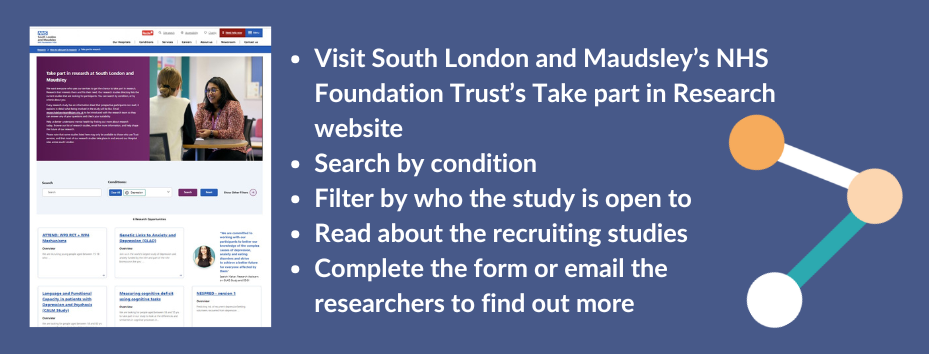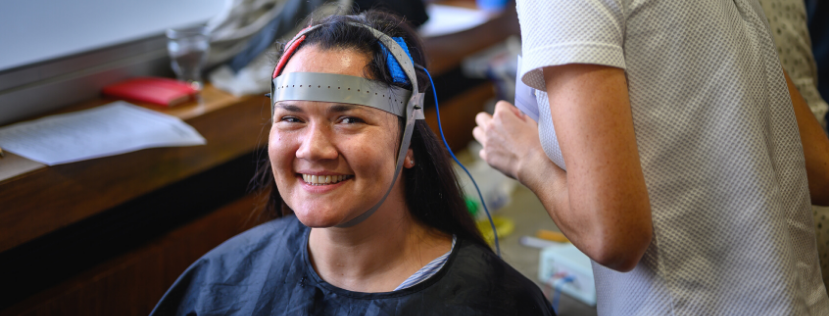Patients, carers, and the public are essential to our work. You are our greatest strength and we could not do our work without your help.
More than 1 million participants took part in health and care studies across England in 2023-24. Research studies covered a range of conditions including depression, cancer and dementia, but also research to prevent disease and keep the population healthier and improve the provision of social care. Last year (2023) saw an additional 92,500 participants take part in research compared to the previous year - an increase of 10%.
We conduct research trials every year. A large number of these are clinical trials.
Why should I take part?
People want to take part in health or social care research for many reasons:
- to improve health and social care for others, as well as giving hope for future generations.
- to learn more about their condition.
- to be more closely and regularly monitored.
- to try a new treatment or device.
- to help researchers learn important new information.
90% of participants had a good experience of taking part in NIHR research.*
* Based on a 2018/19 NIHR Participant experience of research survey of 8,500 participants
How can I take part in research?
At the NIHR Maudsley BRC, there are several research areas, clinical trials and other studies that you could be involved in. These include:

- South London and Maudsley's Take Part in Research: search for and get involved with research taking place at South London and Maudsley and King's Colllege London.
All trials have specific guidelines about who should take part called ‘eligibility criteria’. These determine who can take part in each trial. Even though you may have a relevant medical condition, you may not be suitable for a particular trial.
If you do not find an opportunity via the links above, but would still like to take part in research, ask your doctor, nurse or healthcare professional who may know of other research or opportunities available.
What are clinical trials?
Clinical trials are research studies which test new treatments or approaches to see whether they are effective. They help us to understand how to treat illnesses better. When your doctor decides on a course of treatment for you, they will be using the results of previous clinical trials to make that decision.
What happens if I am asked to take part in a clinical trial?
You will be given information about the trial. Taking part is always voluntary. You should never feel under any pressure to take part in research and all clinical trials follow strict ethical rules. Should you have any concerns about a trial you are approached to take part in, speak to your doctor or care provider.
What will I be asked to do?
Researchers use a wide range of methods to measure particular information. These can include:
- questionnaires or surveys
- brain scans (taking a computer picture of the brain)
- completing puzzles
- blood tests
- interviews either in person or virtually (via Skype or Microsoft Teams)
- computer games
- completing diaries or tasks
What is participating in research like?
All studies are designed differently depending on what is being researched.
Regulation around research is tight. The rules are there to ensure that every phase of a trial or study is run safely.
Research can happen in lots of places: at an NHS hospital or health centre, at a university or research institute, in a care home, or in some cases, in your own home. What the study involves will often determine where it will take place. For more on the practicalities, read about how to take part in a study.
There are lots of different studies that take up different amounts of time. Some studies are online and some involve longer periods of time and are more involved. Decide what time you could set aside to help around your commitments and then find studies that fit with you.
“Involvement in research has given me the confidence to feel and believe that I and my experiences have value and can make a positive contribution to mental health research. I cannot over-emphasize how positive my experience of involvement in research has been. Not only is it a very exciting and interesting area, but the people I have met through this; academics, clinicians and fellow service users, have all been so open and friendly and eager to exchange ideas and experiences.”
Service User Advisory Group (SUAG) member
Why is research important?
Every minute in the UK, someone is diagnosed with a disease or a condition.
The treatment and support they will receive will, at some point, have been informed by research. Whether it’s testing a new medicine, a new surgery procedure or scan, or trying healthier lifestyle choices to prevent disease, everyone has an important role to play – if they want to.





